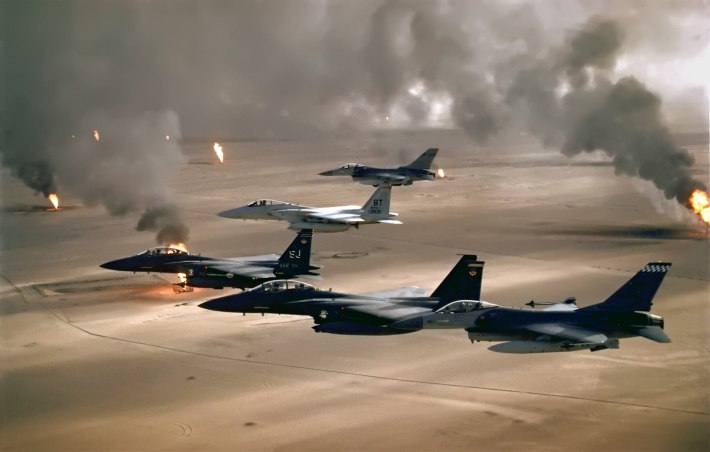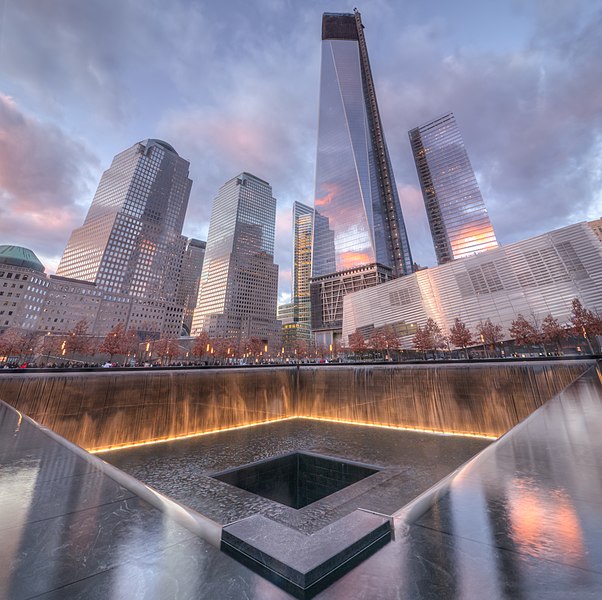The phone rang shortly after 6 a.m., 23 years ago today. As I answered groggily, at first I was happy to hear my brother’s voice, calling from Tokyo, where he lived. “Planes hit the World Trade Center,” he said. I was living in Los Angeles at the time.
“An accident?”
“No, planes!" As in more than one.
It quickly sunk in that this was some kind of intentional act. My brother had just started a conference call with the New York office of his employer when they abruptly shut down the call. The people on the other end of the line had just watched the first plane strike, from the windows of their midtown office. My brother turned on the TV, saw the second plane hit, and then called me.
I was still on the phone with my brother when he said, his voice cracking, “they’re jumping.” Japanese TV didn’t cut away when people started leaping out of windows as the better option to getting cooked alive.
I grew up in New York. The last time I was in the World Trade Center was in 1996 for a risk management conference when I was a reporter covering financial risk for a series of newsletters. As it turns out, my former company, Waters Information, was holding another conference in the World Trade Center on 9/11. Risk Waters Group, as it was renamed after I left, lost 16 people.
As a New Yorker, I was never a fan of driving. I moved to Los Angeles for work and family reasons in 2000, and found an apartment near a stop on LA’s then-budding transit system, in Los Feliz, one of its most walkable neighborhoods. I owned a Toyota Camry, but I didn't drive it much.
It quickly became clear that the attacks on 9/11 had something to do with America’s relationship with the oil-exporting nations of the Middle East. Of course, as we now know, a Saudi named Osama bin Laden and his al Qaeda terrorist group were responsible. To be clear, Bin Laden was a murderous fanatic motivated by an extreme and perverted version of Islam. He eventually got what he deserved. However, it was our own involvement in Middle Eastern wars—our nation's focus on maintaining profitable oil supplies—that put the United States in his crosshairs. If not for the U.S. military presence in his oil-rich home country of Saudi Arabia, it's unclear if his fanatical anger would have been so focused on the U.S. The Middle East is infamous for its imbalance of wealth and power, thanks to a few rich families that control all the oil. The resulting oppression has helped drive and fund extremism and hate. And the U.S., as part of its oil-motivated foreign policy, has been complicit in creating that breeding ground for fundamentalism.

Later on the day of the attacks, as I was meeting up with a friend to head to a local hospital to give blood in the vain hope it could be used to help 9/11 survivors in New York, I stopped to look at my Toyota. I promised myself I would do everything I could to use it as little as possible. Only when it was totally impractical to take transit or bike did I drive. And I continued to spend my free time advocating for the construction of the E-Line that now runs between downtown Los Angeles and Santa Monica. That last part is how I met Streetsblog LA founder Damien Newton, who later hired me to edit Streetsblog San Francisco.
In 2023, while visiting New York, I finally found the emotional strength to go to the 9/11 Memorial. I searched for the name David Rivers, one of my colleagues at Waters who was killed on that day, and found it engraved on the side of the fountain that now rests in the footprint of the North Tower. I also discovered that members of the volunteer fire department from my hometown of Jericho, Long Island were killed.

I once had a conversation with Gersh Kuntzman, my esteemed colleague at Streetsblog NYC, about why most of the population doesn’t seem to grasp the true depth of the carnage caused by our voracious consumption of oil and our over-dependence on the automobile for transportation. Global warming. Traffic violence. Fueling wars and terrorist attacks. Americans literally walk around with tire particles in their bodies. It’s not that I, or anybody else at Streetsblog, wants to ban cars. But why can’t we reduce our dependence on them and make it safe and convenient to walk, bike, and use public transportation? Yes, we've made some progress in the last twenty years, but why isn’t everyone demanding better balance? Why do we continue to build an almost monomodal transportation system where almost everything revolves around more highways, more parking, and more and bigger cars?
After 9/11, instead of reducing petroleum use, America’s oil consumption went up as people drove more and bought larger, more inefficient vehicles. It's just madness, given all the costs we know such choices incur. Why don't all Americans, or at least most, connect these issues? I've yet to hear a satisfactory answer.






